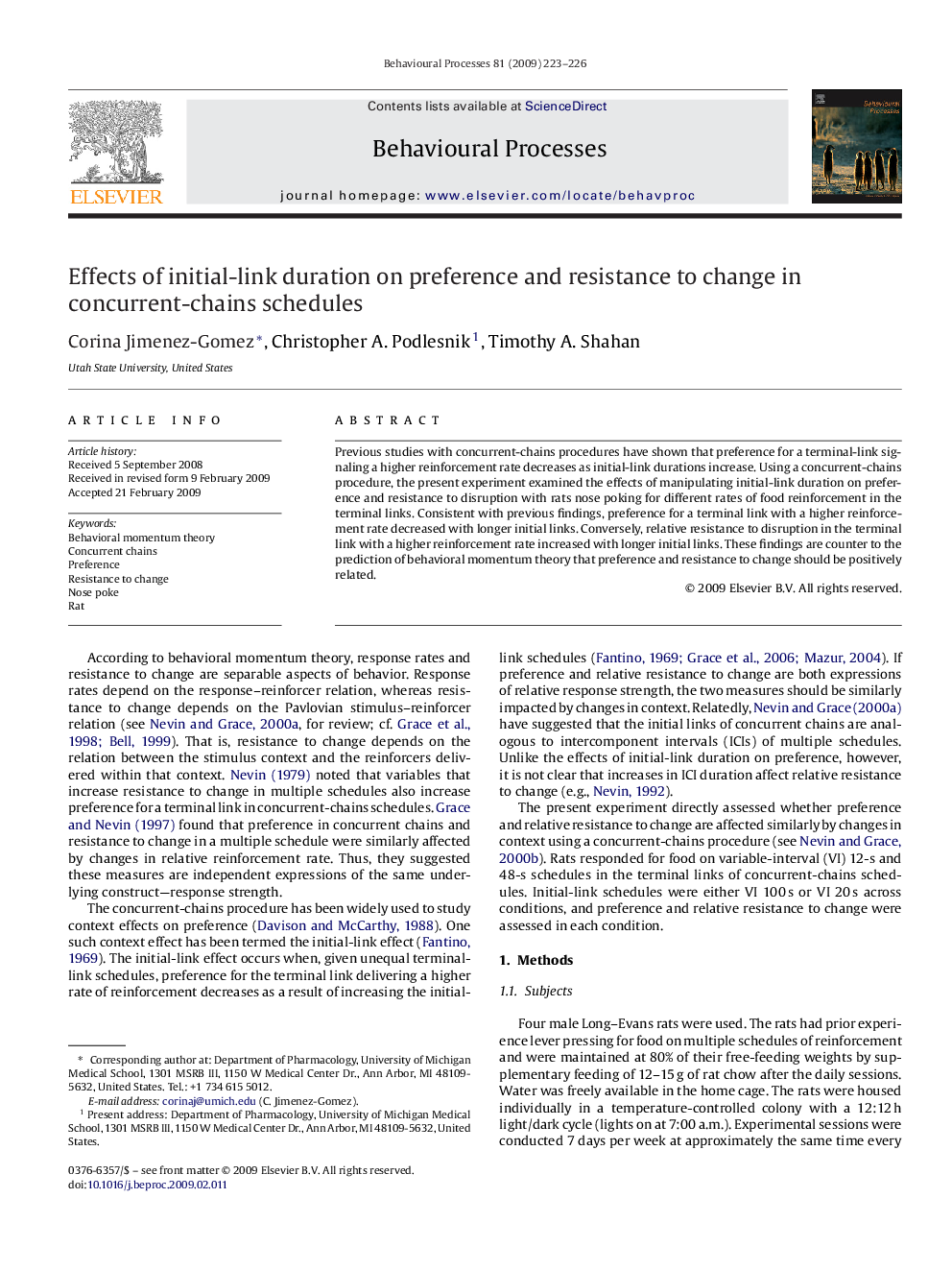| کد مقاله | کد نشریه | سال انتشار | مقاله انگلیسی | نسخه تمام متن |
|---|---|---|---|---|
| 2427349 | 1105957 | 2009 | 4 صفحه PDF | دانلود رایگان |

Previous studies with concurrent-chains procedures have shown that preference for a terminal-link signaling a higher reinforcement rate decreases as initial-link durations increase. Using a concurrent-chains procedure, the present experiment examined the effects of manipulating initial-link duration on preference and resistance to disruption with rats nose poking for different rates of food reinforcement in the terminal links. Consistent with previous findings, preference for a terminal link with a higher reinforcement rate decreased with longer initial links. Conversely, relative resistance to disruption in the terminal link with a higher reinforcement rate increased with longer initial links. These findings are counter to the prediction of behavioral momentum theory that preference and resistance to change should be positively related.
Journal: Behavioural Processes - Volume 81, Issue 2, June 2009, Pages 223–226